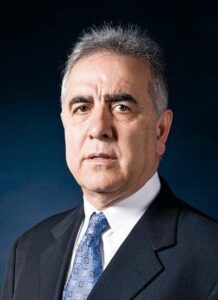Two weeks ago, I reported that former Cong. Dan Burton had resigned as Chairman of the Washington-based Azerbaijan America Alliance because he had not been paid for a year!
It is hard to feel sorry for a man who had eagerly gone to bed with the dictatorial regime of Ilham Aliyev until the money stopped!
For years, many members of Congress have supported all sorts of shady causes and foreign and domestic interest groups to not only reap financial benefits during their tenure in Congress, but more importantly, land a lucrative lobbying job after their retirement from ‘public service’!
Last week, a reader sent me an old article that had exposed Cong. Dan Burton’s questionable practices during his first 18 years in Congress, not including the last 12 years before his retirement! Titled “The Hypocrisy of Dan Burton,” the article was written by American Prospect Online reporter Lindsay Sobel in December 2001.
Ironically, while Burton was Chairing the House Government Reform Committee, he was doing “plenty of favors for contributors, according to an exhaustive investigation by The Hill and other publications in 1997 and 1998,” Sobel wrote. Burton had done “favors for reputed terrorists, human rights violators, and a despot.” As an example, Sobel cites Burton’s request to “the State Department to give former Zairian dictator Mobutu Sese Seko a visa to visit the United States after receiving thousands of dollars in campaign contributions and honoraria from Mobutu’s Washington lobbyist…. Around the time of the contributions, Burton also made statements on the floor of the House of Representatives praising Mobutu.”
Burton “also took thousands of dollars in legal contributions from people with business interests in Turkey,” Sobel reported. “Afterwards, he made a statement on the floor of the House of Representatives he had cribbed from a Turkish government official. The statement defended Turkey against well-documented charges that its government committed serious human rights violations against the Kurds. In 1996, Burton made another floor statement that almost exactly echoed materials that Turkey’s lobbying firm gave to members of Congress, according to The Los Angeles Times. Burton calls himself a defender of international human rights. Nevertheless, after receiving contributions from Turkey’s allies, he defended the country’s government on numerous occasions — despite the fact that the United Nations, State Department and numerous human rights groups have made serious allegations against Turkey’s government.”
Sobel also reported Burton’s involvement “in programs put on by the conservative International Freedom Foundation. Later investigations revealed that South Africa’s apartheid government funded the Foundation in order to increase support for apartheid overseas, and discredit Nelson Mandela’s African National Congress. At least two Burton contributors worked in the Foundation’s Washington office, according to The Los Angeles Times. Consistent with his work with the Foundation, Burton opposed sanctions against South Africa’s apartheid government and openly criticized the African National Congress.”
“In another case, Burton intervened with the Department of Education for a campaign contributor who owns a medical school in the Caribbean, according to Roll Call. Soon after doing the favor, Burton asked his contributor whether his daughter could apply to an affiliated veterinary program.”
Sobel’s research on Burton indicated that he had “run into other kinds of trouble as well. For example, the FBI investigated charges that Burton demanded that a lobbyist for Pakistan raise $5,000 for his campaign or be barred from Burton’s office. (Burton admitted meeting with the lobbyist, but denied shaking him down.) In addition, The Hill reports that Burton paid his criminal defense lawyer $25,000 out of his campaign — rather than personal — funds. Also, according to The Hill, Burton took an allegedly illegal contribution from a group founded by five organizations that the State Department identified as Sikh terrorist groups. Burton advocated the group’s cause — an autonomous Sikh homeland in India.”
Regrettably, Burton is not an exception in Washington. There are many others in and out of Congress who are just like him. Therefore, it is imperative to establish an Armenian-American watchdog group that investigates the financial records of all elected officials who consistently vote against Armenian issues and support Azerbaijan and Turkey. These two countries have such odious human rights records that the only reason politicians would support them is to enrich themselves either during their service in Congress or after retiring, and often both!


